
Answer:
Enteric coatings, a protective outer layer applied to tablets, capsules and softgels, can help protect supplement ingredients from being released in the stomach or destroyed by stomach acid. Made of materials such as wax, gelatin, plant fibers like starch, plasticizers, or fatty acids, (see list of coating agents in ConsumerLab.com's Inactive Ingredients Review) these coatings are designed to keep the tablet intact until it reaches the less acidic small intestine, where most nutrient absorption takes place. Enteric coatings can also reduce the unpleasant aftertaste and burps caused by some supplements, like garlic and fish oil, and can help improve the shelf-life of supplements that are particularly vulnerable to the effects of heat and moisture, like SAMe.
Enteric coatings may be particularly helpful for protecting supplement ingredients that are known to be destroyed or deactivated in the acidic environment of the stomach, including some digestive enzymes, alliinase, an enzyme found in garlic and SAMe. However, enteric coatings are not always necessary or beneficial, especially for supplement ingredients that require stomach acid or intrinsic factor, which is produced in the stomach, for optimal absorption.
For example, vitamin B12 must bind with intrinsic factor in the stomach in order to be properly absorbed (NIH Vitamin B Fact Sheet 2011). Stomach acid helps to release minerals like magnesium, calcium and iron from the supplement compound (Gerber, Integ Pract) and has been found to be important for the absorption of zinc (Henderson, J Parenter Enteral Nutr 1995). For this reason, enterically coating these vitamins and minerals, or combination multivitamin and multimineral formulas, may not be advisable.
Probiotic supplements are sometimes available with enteric coating, and a number of these products have passed ConsumerLab.com enteric coating testing. However, as noted in our Probiotics Review, most Lactobacillus, Bifidobacterium, and Streptococcus species of probiotics do not need enteric coating as they can survive passage through the stomach. There is also evidence that L. bulgaricus and S. thermophilus, and Leuconostoc and Lactococcus species are able to survive passage through the stomach.
There are several concerns about enteric coatings to be aware of:
Contaminants
If a supplement is not properly manufactured it could contain unwanted bacteria, yeast, or mold. Stomach acid is among the body's first lines of defense against harmful microbes, so an enteric coating could protect contaminating organisms and potentially make you more susceptible to illness or infection. This is one reason why ConsumerLab.com tests all probiotics supplements, for example, for microbial contaminants.
Releasing ingredients at the wrong time
Enteric coatings are designed to improve absorption by protecting ingredients until they reach the small intestine, but if the coating doesnt work properly and release ingredients at the right time, it can decrease or prevent absorption. An enterically coated supplement that releases too soon can expose ingredients to stomach acid instead of protecting them or, in the case of supplements like fish oil or garlic, protecting the user from unpleasant side- effects. In one of our reviews of fish oil supplements, for example, we found that an enterically coated fish oil capsule released its oil too soon, which could cause the user to experience a fishy aftertaste or burps.
On the other hand, if the coating does not break down properly to release ingredients, or releases them too late (after they've passed through parts of the small intestine), the ingredients may not be absorbed. This is because in the early part of the intestine, right after the stomach, bile is added to foods to aid the absorption of oils including omega-3 and omega-6 fatty acids. If an enteric coated supplement does not release its ingredients soon enough, there is less opportunity for bile to emulsify the fats, reducing absorption (and, possibly, resulting in an oily stool). Consequently, unless repeating aftertaste keeps you from using a fish oil supplements, you may be better off skipping the enteric coating on those products.
Cost
Supplements that are enterically coated tend to cost more than those which are not, but it is possible to find a quality enterically coated supplement that does not cost too much more. We found one fish oil supplement in an enterically coated softgel, GNC Triple Strength Fish Oil + Vitamin D-3, that passed ConsumerLab.com tests and cost just 3 cents more (per 100 mg of EPA and DHA) than the lowest-priced non-enterically coated fish oil softgel to pass testing.
When considering price, first be sure that there is good reason to purchase an enterically coated version of the supplement you want: ingredients that can be damaged by stomach acid or reduction of an unpleasant aftertaste. You can find more information about potential benefits of enteric coating for specific supplements in ConsumerLab.com's individual product reviews for garlic, fish oil, probiotics and SAMe. Then, check to see whether the supplement passed ConsumerLab.com's enteric coating testing, and compare quality ratings and prices for different brands.
Other Considerations
Be aware that enteric coatings are intended to break down and release ingredients when exposed to the more alkaline environment of the small intestine. If you take medications that change the acidic environment of the stomach into a more alkaline one, such as those for heart burn or acid reflux (TUMS, Rolaids, Prevacid or Nexium, etc.) the enteric coating could potentially break down and release ingredients too early, in the stomach.
Enteric coated supplements are not recommended for people in recovery from gastric bypass surgery.
While you can try testing your non-enterically coated supplements for proper disintegration at home, the test will not work for enteric coated products. This is why ConsumerLab.com tests enterically coated products and reports when they dont disintegrate within the appropriate timeframe. We've found this to happen in a SAMe supplement for pets that failed enteric coating testing.
Join today to unlock all member benefits including full access to all CL Answers and over 1,400 reviews.
Join NowAlready a member? Sign In Here.
Join now at www.consumerlab.com/join/

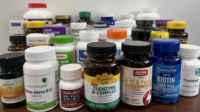
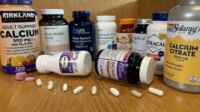

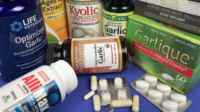
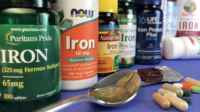
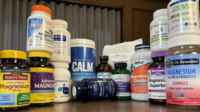
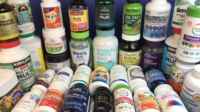
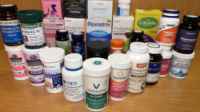
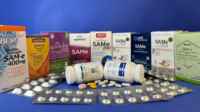
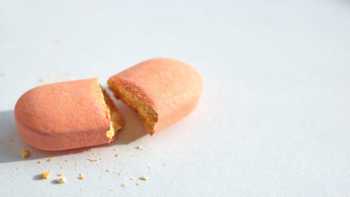






Submit your comment
This feature is restricted to active members.
Join now to add comments and get all member benefits, including over 1,400 reviews.
Join NowAlready a member? Sign in here.